Work started on second satellite
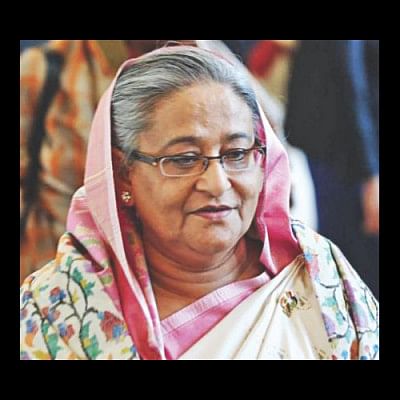
Prime Minister Sheikh Hasina yesterday revealed that the government has already started work to launch the country's second satellite --'Bangabandhu-2' -- so that it could operate before the 15-year expiry time of the 'Bangabandhu-1'.
She also slammed BNP for raising questions about the ownership and effectiveness of “Bangabandhu-1”, saying those who made such comments were nothing but ignorant.
“The government has started the process to launch the second satellite -- Bangabandhu-2 -- ahead of the expiry of Bangabandhu-1. It takes 5 to 6 years to prepare a satellite. That's why we've already started work to build Bangabandhu-2,” she said in the Parliament as a response to lawmakers' queries.
"We're taking preparations for the second one to launch during the lifespan of the current satellite.”
Saying that the life of a satellite is 15 years long, the premier added, “When the lifespan of the second satellite will come to an end, we'll go for Bangabandhu-3 and this process will continue.”
She said her government would certainly continue research in space technology and make the best efforts to cope with any new technology in the future.
"We'll adopt the technology which will come to us...this is the era of satellite and we launched ours, let's see what comes next. We'll surely think about the next one when it comes," she said.
Bangabandhu-1, now in orbit after its successful launching on May 12, marked Bangladesh's debut in the global space society.
The historic event took place at 2:14am Bangladesh time on May 12, when the country's first geostationary communication satellite started its voyage towards orbit from the Kennedy Space Centre in Florida, USA.
In reply to a query of Jatiya Party MP Fakhrul Imam on whether the Bangabandhu-1 would be able to take clear images due to its position in orbit, the PM said the location of the satellite, at the 119.1° East longitude geostationary slot, would not hamper getting clear footage.
About the performance of the satellite, PM unequivocally said, “It [Bangabandhu-1] has already reached its orbit and has started sending some signals. There isn't any confusion or anything to be worried about [its performance].”
To a question about the amount of workers who went abroad in the last 10 years, the PM informed the House that since 2009 a total of 55.27 lakh workers had gone abroad.
PM LAMBASTS BNP
Lambasting BNP for raising questions about the ownership of Bangabandhu-1 by saying that it was sold to owners of two companies, PM said Bangladesh government was the owner of Bangabandhu-1.
"Of course, Bangladesh is the owner of this satellite, Bangladesh government is the owner of this satellite like other government entities," she said.
Earlier in a supplementary question, AL MP elected in reserved seats for women, Fazilatun Nesa Bappi, wanted to know who the owner of Bangabandhu satellite-1 was, saying BNP secretary general Mirza Fakhrul Islam Alamgir claimed that the ownership of the satellite was given away to two private companies.
In reply, PM called Fakhrul an ignorant man for raising such a question.
"With this, the nation has been able to understand they [BNP] don't love the country, they don't have any idea about technology. And that's why the country couldn't make progress during their regime," she said.
The BNP secretary general at a programme last month alleged that the ownership of Bangabandhu-1 went to two company owners, but did not disclose names.
Hasina said two people could not be the owners of the Bangabandhu-1. "It is shameful to make such comments," she said.
The PM has said that the government can rent out the satellite services and earn money from it. The satellite has various transponders, which offer the satellite services. Those who rent a transponder can become an owner of that specific one and use it. But the government alone owns the satellite as a whole.
Hasina mentioned that the information ministry has allowed two people to run Direct Television to Home (DTH) business in the country using the satellite.
PM said there are 40 transponders of the satellite and Bangladesh can use 20 at most. "The rest of the transponders can be used by Saarc member countries and Indonesia, the Philippines, Turkmenistan and Uzbekistan."

 For all latest news, follow The Daily Star's Google News channel.
For all latest news, follow The Daily Star's Google News channel. 

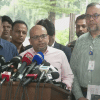
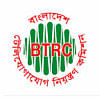
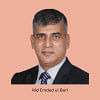
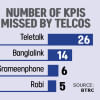



Comments